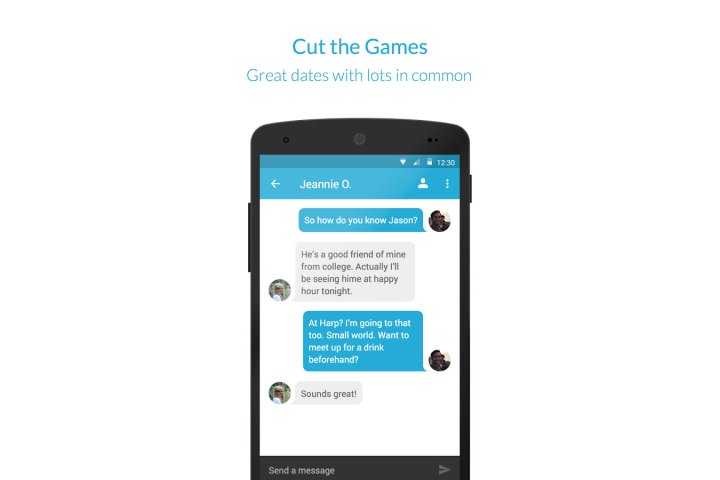
Hinge has joined the Tinder family. Technically, actually, Hinge has joined the Match Group, the parent company of a large number of apps meant to help you find love (or at least, a lusty evening or two). Already under the Match Group are Tinder, OkCupid, and of course, Match, and now that the company has acquired a 51 percent stake in Hinge, it’s added to its portfolio once again. Under the terms of the deal, Match Group retains the right to acquire the rest of Hinge’s shares within a 12-month period, so sometime during this year or 2019, we could see Hinge fully folded into Match Group.
The company says that it first became interested in the mutual connections-based dating app in 2017. Hinge no longer allows users to swipe right (or left), and instead provides detailed profiles of the men and women seeking companionship on its platform. According to Hinge, ever since it did away with swiping, it has seen a user base growth of 400 percent. This, the app claims, is because it makes Hinge seem more like a place to find relationships and truly get to know people, rather than a hookup scene dominated by instantaneous aesthetic judgments.
If this sounds like it’s the opposite of Tinder, that is because in many ways, it is. But Match Group apparently sees this tension as advantageous.
“Dating isn’t a one-size-fits-all approach,” a Match Group spokesperson told TechCrunch. “We operate a variety of products because people gravitate to different apps for different reasons.”
And it seems as though Hinge is fully onboard with joining the Match Group, too. The company’s CEO Justin McLeod noted that the merger could help the company grow even more than it might have been able to on its own.
“At a certain point, having the scaling capability of a well-funded and experienced partner [like Match Group] makes sense,” McLeod told TechCrunch. “We want to bring a more thoughtful dating experience to the most people.”
Not all dating apps have been quite so eager to join the family, however. In November, Match Group tried to take over the female-focused app Bumble. This ended disastrously, as Match Group ultimately sued Bumble for patent infringement, accusing the app of copying “Tinder’s world-changing, card-swipe-based, mutual opt-in premise.” Bumble countersued for $400 million, claiming that Match Group attained trade secrets illegally during the course of acquisition discussions. Both lawsuit settlements are still pending.


